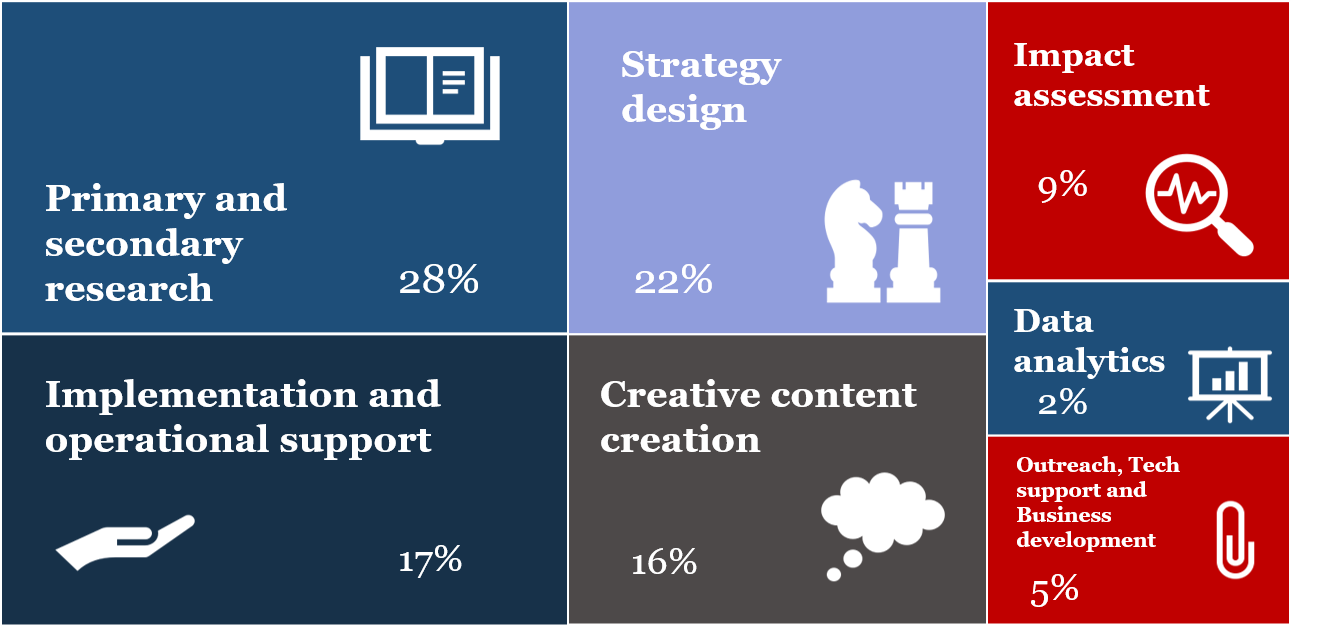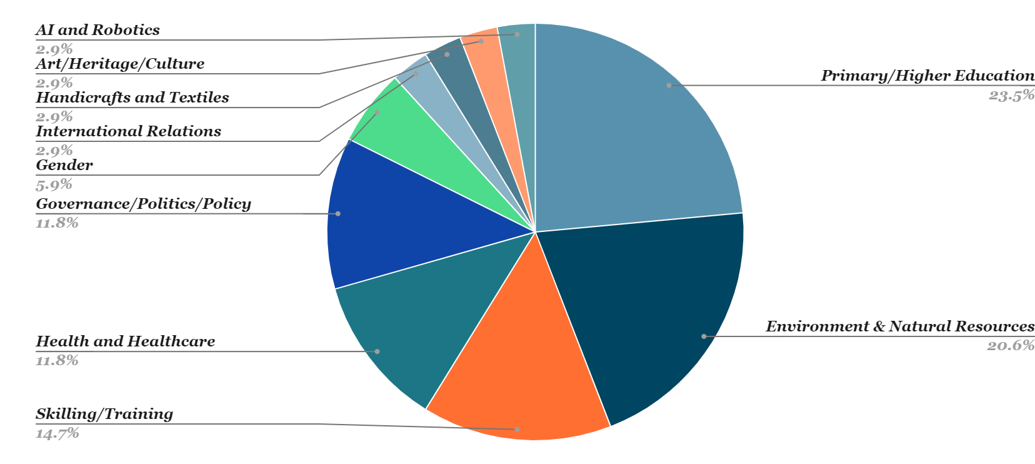ELM Stakeholders
Clients
ELM projects are sourced from organisations and institutions from diverse sectors, who are referred to as ‘Clients’. These may include for-profit/not-for-profit organisations, government institutions, established businesses, start-ups, policy-makers, think tanks, educational/research institutions, etc.
The Client designs and offers the ELM project to the team. The Client is represented by a Project Head (PH), and a Project Lead (PL), both of whom lead the project, guide, mentor, and supervise the work of the team, and evaluate and assess their progress.
Over the last ten years of the YIF, our projects have spanned various domains and sectors, including government and policy, entrepreneurship, social development, education, art and heritage, media and communications, research etc. Some of our past Clients include Government of Delhi, INTACH, IIM Bangalore, PwC, the UNFPA, the University of Chicago, People’s Archive of Rural India (PARI), Mazdoor Kisan Shakti Sangathan (MKSS), Renew Power, STIR Education, Carnegie India, Centre for Policy Research, Centre for Civil Society, Samagra Development, Generation India Foundation, eGovernments Foundation, PadCare Foundation, and WWF India, among others.
YIF Internal Team
From the University’s end, the Fellows’ learning and progress in the ELM is overseen by an ELM supervising faculty member, and members of the YIF Programme team, who together form the ‘YIF Internal Team’. Mr. Srikant Sastri will be the ELM supervising faculty for the YIF class of 2022.
The Fellows receive training on problem solving, team-building, basics of research and data analytical skills from the ELM supervising faculty and relevant domain experts. Each team is given focused attention and their progress is enabled through periodic reviews, reports, and requisite meetings.
ELM Team
The ELM team consists of a diverse mix of five Young India Fellows, who work on a project offered by the Client. Fellows form their own teams based on their individual skills, interests, and project preferences, and pitch for the projects that they wish to work on.












